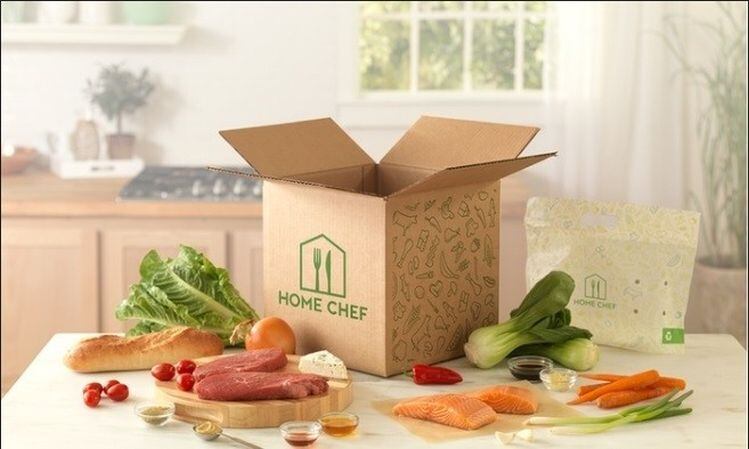Speaking to FoodNavigator-USA after Kroger completed its deal to acquire Home Chef, DeNardis said: “The challenge all the meal kit companies have is that we’re all solving the dinner next week problem, but not the dinner tonight problem. It’s about being there whenever and wherever consumers are thinking about dinner.”
The recent surge of interest in retail meal kits is not proof that the home delivery subscription model is not sustainable, he insisted, but a reflection of the fact that it doesn’t have universal appeal.
“For many people - and I include myself among this group - meal kits have now become built into the weekly regimen,” said DeNardis.
“But for other people it’s challenging for them to predict that they are going to be home to cook multiple nights next week. For some other customers that have not tried meal kit services at all, there is also an aversion to subscriptions.”
Kroger has 60 million shoppers coming into its stores on a weekly basis
For customers that like cooking with Home Chef but don’t stick with their subscriptions, he added, the “biggest thing we hear is that we might not fit into their lifestyle; perhaps it’s too expensive to do three meals with us in perpetuity, or they have family in town or they are traveling, so that’s why the retail opportunity excites us. It gives us the opportunity to reach customers at a lower price point not just on a per meal basis, but by the fact that you can just have one meal at a time if you want.”

Asked about the size of the meal kit prize at retail, he said: “Kroger has 60 million shoppers coming into its stores on a weekly basis and we have something like a million customers come to our site a month, so if you think of the opportunity, about the number of eyeballs or the foot traffic in that retail environment, it’s a multiple of the opportunity online, so once we get distribution through Kroger we expect to see meaningful growth.”
Merchandising meal kits in stores
The price for Home Chef retail meal kits has not been determined yet, but it will be lower on a per meal basis than the delivered options, which have to factor in shipping and other costs, he said.
“In a retail environment, our costs of delivery with a larger number of kits delivered to stores will provide inherent efficiencies.”
Asked where in store the meal kits would sit, he said: “The ideal placement is on that main path around the store so shoppers see them before they get too deep into their shop.”
There are other ways to build the home delivery business that don’t involve a subscription
Aside from developing retail kits with Kroger, Home Chef will also be promoting its home delivery business in stores “using the various digital assets that Kroger has, whether it’s via the various websites or their email list and thinking about ways to integrate it into their loyalty program so that we can target the right meal kits shoppers with the right offers to get them to try home delivery,” added DeNardis.
There will also be operational synergies, he predicted: “It’s obviously very early days, but Kroger is obviously buying a lot more food than we are, so I imagine there will be a lot of cost savings on procurement.”
While Kroger will be Home Chef’s “largest and most important partner,” he said, Home Chef may still tie up with other retailers, either via selling retail meal kits, or via partnerships such as one it has just struck with Hannaford whereby shoppers can order Home Chef meal kits through Hannaford To Go and pick them up at their local store the same day.
“There are other ways to build the home delivery business that don’t involve a subscription," he added. "Kroger also has a click list program and we can tap into that, and they have partnered with Instacart in certain markets where they deliver to customers’ homes so it’s almost delivery mechanism agnostic. There may also be opportunities with Ocado [which whom Kroger has just struck a deal] in future.”

